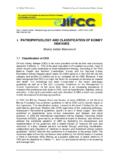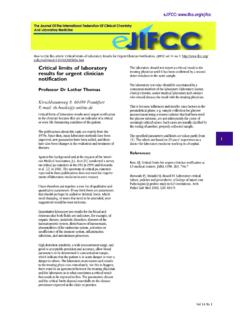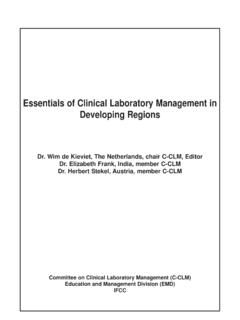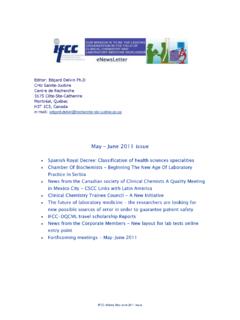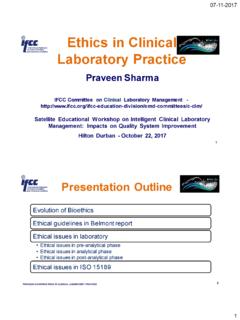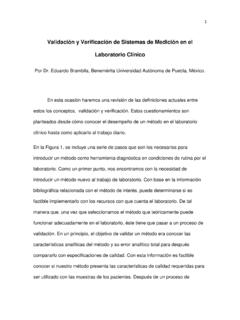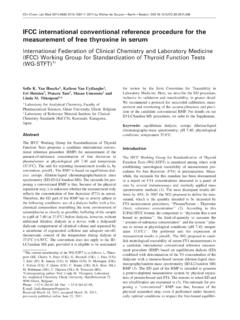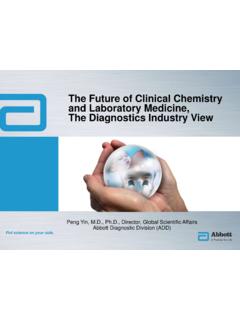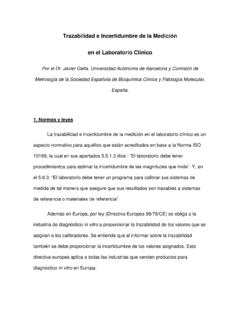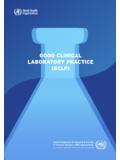Transcription of International Federation of Clinical Chemistry and ...
1 International Federation of Clinical Chemistry and laboratory MedicineCommunications and Publications Division (CPD) of the IFCCE ditor: Tahir Pillay, MB ChB, PhD, FRCPath (Lon), FCPath (SA) Department of Chemical Pathology - University of Pretoria - Pretoria - South Africae-mail: May - June2014 EDITORIAL: 'Shaping the Future of laboratory medicine ' .. Pages 3-6 WorldLab 2014 Istanbul .. Pages 7-8 Letter from the IFCC Historian .. Pages 9-13 NEWS FROM REGIONAL FEDERATIONS AND NATIONAL ASSOCIATIONS APFCB Office Bearers.
2 Page 15 EFLM BIASED LIPID-BASED RISK SCORES IN HYPERTRIGLYCERIDEMIA An Important Study by the EAS-EFLM CARDIAC MARKER WG Collaborative Project Group.. Pages 16-17 EFLM Report from the 2014 UK Diagnostics Forum: Changing the Landscape of Adoption of Diagnostics .. Pages 18-19 14th EFLM Continuing Postgraduate Course in Clinical Chemistry and laboratory medicine - Dubrovnik, October 25-26, 2014 .. Pages 20-22 20th Anniversary of the LABKVALITA .. Pages 23-24 News from Uruguay .. Page 25 IFCC PSEP: Myriam Oliveira Rodriguez.
3 Pages 26-27 Welcome to a New IFCC Corporate Member .. Page 28 GUANGZHOU WONDFO BIOTECH CO. LTD News from the IFCC website .. Page 28 Forthcoming Meetings .. Pages 29-30 Editorial Cassette .. Page 32In this issue3 Introduction:1. laboratory medicine is evolving rapidly and is playing an ever more important role in modern healthcare. National and interna-tional structures to support the evolving labo-ratory medicine are not always able to accom-modate this change. In May 2013 the IFCC Executive Board launched a one year consulta-tion entitled Shaping the Future of laboratory medicine which sought to stimulate discussion at national and International level.
4 This article brings together the major points of discussion ahead of The Great Debate at the IFCC Council meeting in Istanbul in June 2014. Central Role of laboratory medicine :2. It is generally accepted that a high percentage of all Clinical decisions are influenced by labora-tory medicine results at a small overall cost to the healthcare budget. This places great respon-sibility on laboratory medicine specialists to po-sition themselves at the centre of the multidis-ciplinary team that is responsible for all aspects of healthcare from wellness screening through to monitoring the response to medicine under Review:3.
5 Despite, or perhaps because of, its central role laboratory medicine services are currently under review in a large number of countries around the world. The exact terms of these re-views may differ but there three components to the review: Improving quality across the spectrum from analytical quality, to quality assurance to quality management to laboratory ac-creditation. Different countries are on different rungs of the quality ladder but the direction of travel is clear. Improving Clinical effectiveness by targeting the use of laboratory medicine to improve Clinical outcomes.
6 The timely presentation of results is one component as is a Clinical in-terpretive and advisory service. Recognising the growing importance of patient-focussed medicine is another requirement. Improving cost effectiveness by doing more at equal or higher quality for a lower total cost. laboratory medicine has a unique record of achievement in this area but the trend will continue. The appropriate use of the labora-tory and demonstrating value for money are growing facets of cost effectivenessMega-Trends in Global Healthcare:4.
7 laboratory medicine needs to adapt to the changing shape and delivery of healthcare. Ex-perts in the business community have highlight-ed 12 mega-trends in future healthcare: An aging population with increasing chronic disease Technological advance supporting personal-ised medicine Innovation and increasing demand, espe-cially in developing countries Evidence-based medicine and the adoption of Clinical practice guidelines Shaping the Future of laboratory medicine : THE GREAT DEBATEE ditorial 343 Article continued on pages.
8 4-6 by Dr. Graham BEASTALL, IFCC Presidentfor the IFCC Executive Dr. Graham BEASTALL IFCC PresidentThis article is written in 20 num-bered paragraphs one for each of 20 PowerPoint slides that may be downloaded from the IFCC website (click here to access the presentation).4 Environmental challenges air, water, food, climate, congestion Global pandemics pandemic influenza Monitoring healthy people to prevent dis-ease and keep them well Greater devolution of aspects of healthcare to trained non-medical professionals Philanthropy to speed up advances in healthcare in developing countries Intelligent and informed patients influenc-ing decisions on their healthcare Medical tourism to get the best quality or value healthcare in another country Rising costs and inadequate health budgetsLaboratory medicine contributes to
9 Virtually all of these mega-trends by facilitating improved Clinical effectiveness and/or cost medicine - Future Priorities:5. It follows from the discussion to date that the future priorities for laboratory medicine must lie in three areas: Continuous laboratory quality improvement Improvement in Clinical outcomes Improvement in efficiency and cost effec-tivenessOne way of looking at this is by adding value to a high quality service. To deliver these priorities will require laboratory medicine specialists to work outside as well as inside laboratoriesDrivers for Change in laboratory medicine :6.
10 There are many drivers for change in laboratory medicine . It is convenient to divide these into five major categories to aid understanding: Globalisation Technological advance Smarter working Integrated diagnostics Adding value to improve outcomesEach of these topics merits a detailed report. For the purposes of this review each will get a short Globalisation. We live in a world of instant com-munication. This provides an opportunity to share information on an International scale on a wide range of topics including: Quality standards laboratory practice Clinical applicationsThrough sharing we can more rapidly meet the requirements of patients, clinicians and other healthcare interests8.
